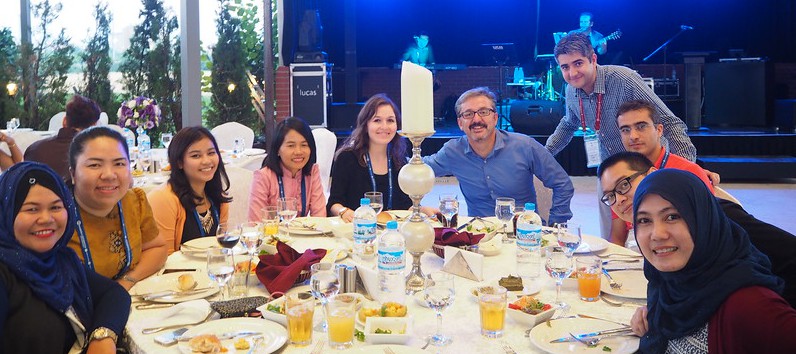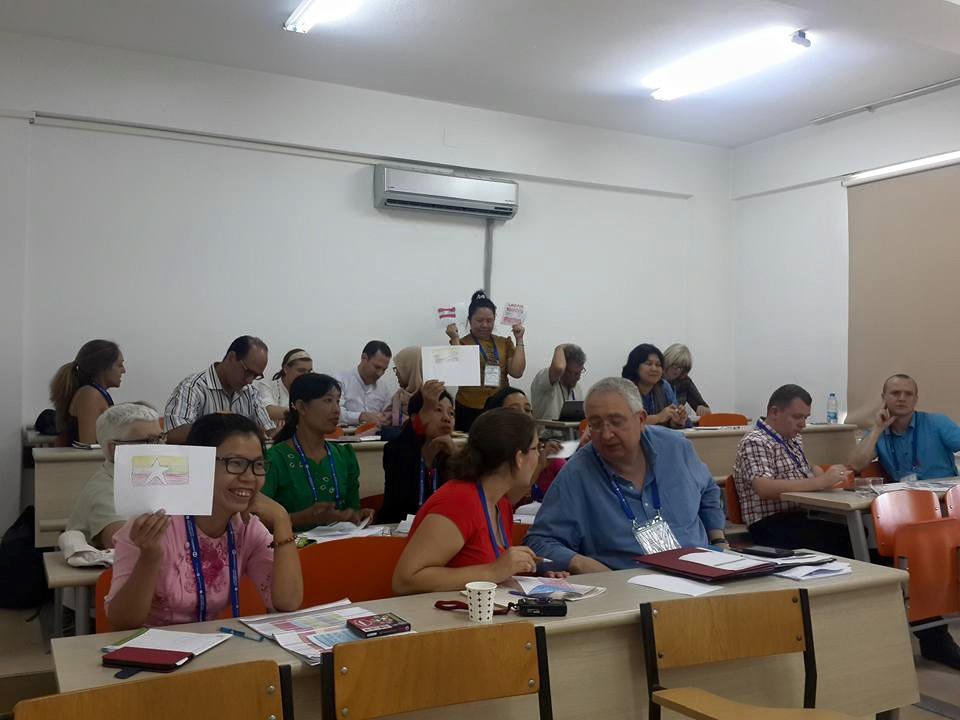On the 22th – 28th of July, the Bridges Across Borders Southeast Asia Community Legal Education Initiative (BABSEACLE) team joined various United Nations Development Programme (UNDP) and USAID sponsored Myanmar university lecturers to participate in the 8th Worldwide GAJE & 13th IJCLE Conference, which took place on the Anadolu University campus in Eskişehir, Turkey. The amazing event was bifurcated into a general conference consisting of plenaries and concurrent sessions (22th – 25th of July) and a training-of-trainers (TOT) workshop (27th – 28th of July). The conference was a fantastic opportunity for the 350 participants from different countries and legal professions to share and learn from each other.
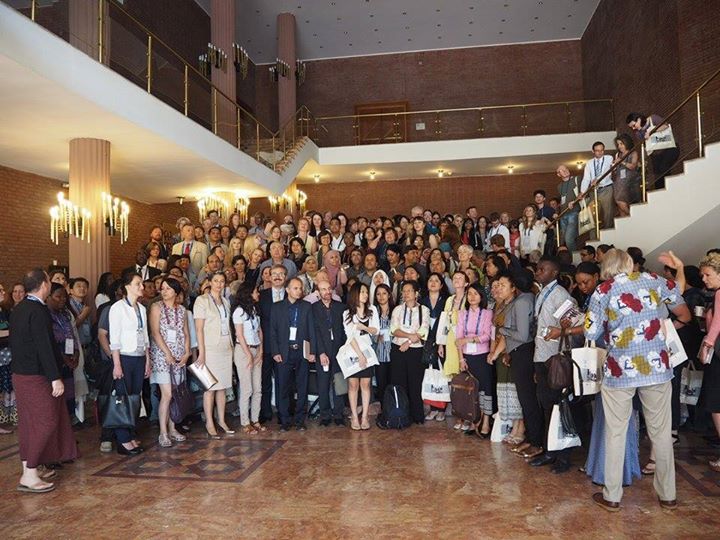
It was a great opportunity for the BABSEACLE team members from Laos, Myanmar, and Thailand to present different topics that reflected the shared Asian work experiences in two sessions:
1. The Intersection of Pro Bono and Justice Education – the Asia Experience;
Lead Presenter: Bruce Lasky
Co-Presenters:
- Nattakan Chomputhong
- Thip Nounsyvong
This session focused on how the Asia pro bono and justice education movements have been working in synergy. The historical context of both movements was discussed through contemporary examples of mutual paradigm-shifting justice delivery mechanisms, regional comparative examples, and demonstrations of cross-border initiatives.
2. The Nationwide Development of CLE in Laos: Strengths and Challenges;
Lead Presenter: Thip Nounsyvong
Co-Presenters:
- Pavina Thephithuck
This session was about the needs and nationwide development of CLE programmes that BABSEACLE is working on in coordination with law teaching institutions and our core partner, the Faculty of Law and Political Science at National University of Laos. These institutions work together in order to provide a full understanding of the values and benefits of these programmes. Some of these values and benefits include providing strong support to solve common issues that such development faces.
3. Nationwide Development of CLE in Myanmar: Strengths and Challenges;
Lead Presenter: Nwe Mar
Co-Presenters:
- Wendy Morrish
This session was about the needs and nationwide development of CLE programmes that BABSEACLE is working on in coordination with law teaching institutions and our core partner, the Faculty of Law.All of these institutions worked together to provide a full understanding of the values and benefits of these programmes.
4. The Need and Impact of Teaching Legal Ethics/Pro Bono/Access to Justice/Professional Responsibility in Asia;
Lead Presenter: Nattakan Chomputhong
Co-Presenters:
- Suphamat Phonphra
This session stressed the need for teaching legal ethics, pro bono, access to justice, and professional responsibility in developmentally-transitioning Asian countries including Cambodia, Laos, Myanmar, Thailand, and Vietnam. The impact and integration of legal ethics and professional responsibility were discussed along with curricula development projects that BABSEACLE and its partners introduced into new and existing Asian university courses.
5. Measuring and Reporting the Impacts of CLE Programmes that Strengthen Access to Justice;
Lead Presenter: Wendy Morrish
Co-Presenters:
- Christopher Walsh
This session was an interactive and participatory session, which addressed the ways that research monitoring & evaluation (RME) assists universities and justice education programmes. These include CLE programmes that measure their impact in line with key course programme performance indicators (KPI‘s). Some session goals included the design of three data collection tools (Survey, Individual Interview Schedule, and Group Interview Schedule), whereby participants pooled their data collection tool designs in order to explore useful data collection, analysis resources, and basic ethical protocols.
6. Unlocking the University Gates: Connecting Myanmar Legal Education to The Legal Profession and to Community Concerns;
Lead Presenter: Jacob Stevens
Co-Presenters:
- Helen Yandell
This session emphasized the importance of connecting Myanmar law education to the legal profession and to the juridical community concerns via three justice education related and capacity building vehicles. To engage university law department teachers in clinical legal education, the pilot public defender (legal aid) Yangon office and the United Nations Development Programme pilot plan, which establishes “Rule of Law Centers” for lawyers, government justice actors, and civil society members, are all interrelated initiatives that each pose challenging questions. These questions are in regards to the promotion of interactive learning methodologies and the collaboration of professions, communities, and human rights principles in a transitional and authoritarian environment. Attendees were asked to take a stand, to solve problems, and even to role-play solutions in order to show panelists how to move forward in these ongoing and exciting projects.
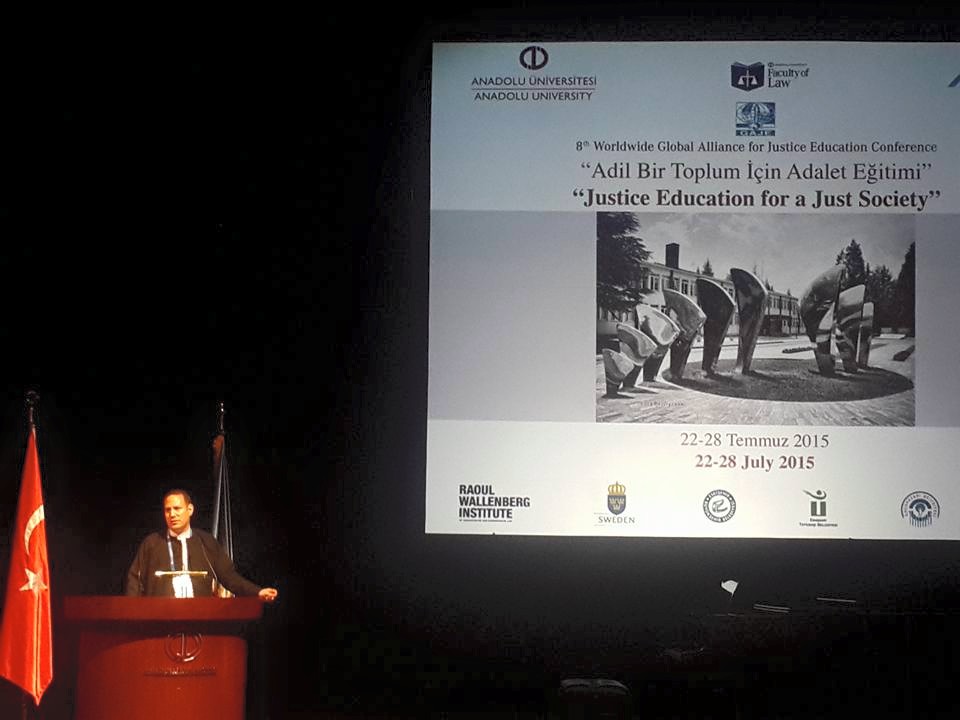
7. So you want to start a Street Law Programme;
Lead Presenter: Bruce Lasky
Co-Presenters:
- Leni Widi Mulyani
- Lindi Coetzee
This session shared successes and challenges in starting programmes in different parts of the world. The participants explored the designing and conducting of programmes and the training and evaluating of law students. The co-presenters had set up Street Law programmes in many countries throughout Asia, South America, Eastern Europe, Australia, and Africa. As part of this session, they shared their experiences. The session consisted of extensive audience participation, using interactive teaching methodologies, such a brainstorming, small groups, a case study analysis, and role-plays. Issues such as freedom of the press, hate speech, sensitivity to the beliefs of other religions, and questionable police practices were discussed. Materials on how to conduct this lesson in their own programmes were handed out as well as other materials on how to start and conduct a Street Law programme.
During the conference, organizers arranged field trips to local justice education sites that included a court and refugee camp where the participants learned about Turkish legal systems and legal aid. After the conference, there was a two-day training of trainers on “Implementing Justice Education in Diverse Contexts.”
The first training day explored the “Who/What/Why/How” of teaching CLE:
- The “who” do we teach session was about similarities and differences among participants’ experience with students in their countries;
- The “what” do we teach session focused on the diversity of learning outcomes we seek in a legal education. This legal education places professionalism, quality of the lawyer, and getting social justice at the core of the curriculum;
- The “why” do we teach session explored the benefits participants derive from providing to others through their work and;
- The “how” do we teach session built upon the previous sessions and put previously discussed concepts and ideas into practice.
The second training day explored the “how” of developing social justice lesson plans:
- How do we work together in small groups?
- How do we create social justice lesson plans? And;
- How do we develop, demonstrate, and evaluate social justice lesson plans?
This experience is invaluable for the BABSEACLE team from Laos, Myanmar, and Thailand to have the opportunity to exchange ideas with people not just from Asia, but from around the world. This was especially true for Pa, a Legal Fellow from Laos. It was their first time attending the Global Alliance for Justice Education Conference and she said, “I couldn’t express all of my feelings about how I fell in attending this wonderful conference as I’m one of the two who is from Laos attending this conference and I just would like to thank for the opportunity in supporting as one to the participant. I learnt many new things from other presenters from around the world and now I even thought more boardly on Justice Education and how to implements as well as improving my skill and my country”
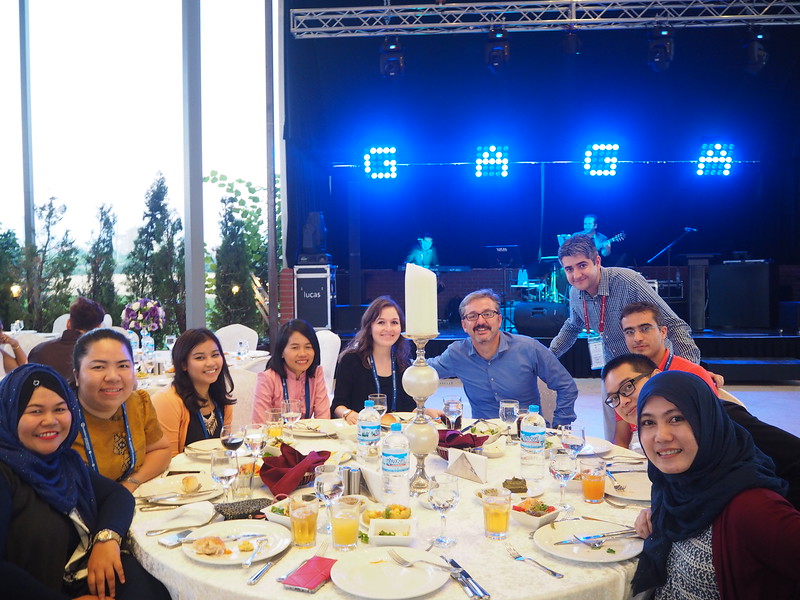
By Ann_Legal Trainer, Thip_ National CLE coordinator , Pa_Legal Fellow and Bee_Access to Justice Initiative Coordinator and SEACLEA Coordinator

